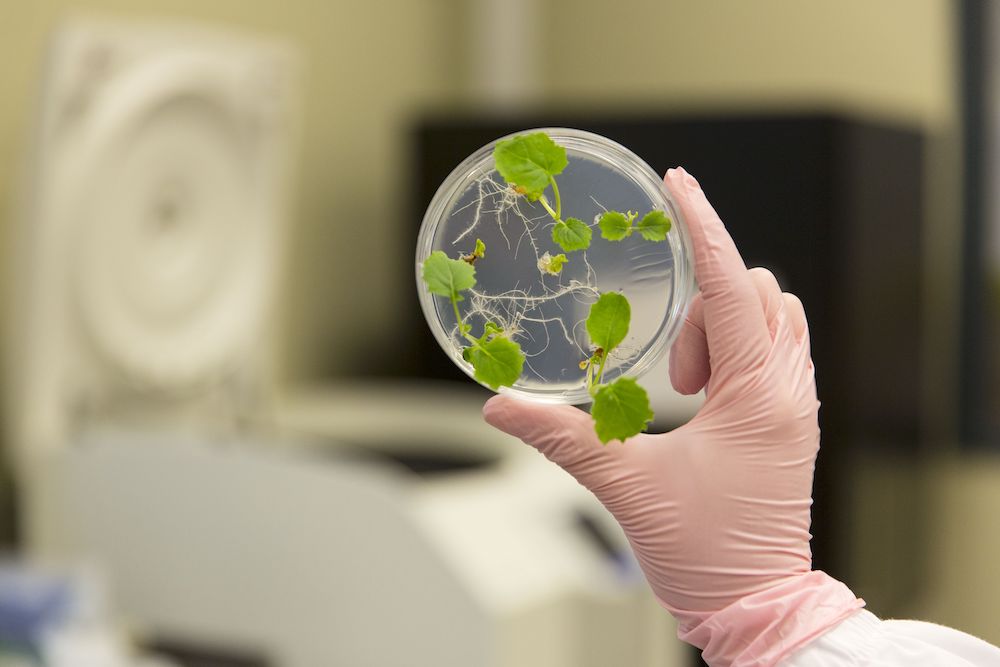The Top Five Things About GMOs That People Cared About in 2020
Since its launch in 2013, GMO Answers has been dedicated to answering consumers' questions about genetically modified organisms (GMOs) and encouraged ongoing conversations about science and biotechnology. In 2020, the world experienced a lot of changes. From local lockdowns and the impact of the COVID global pandemic on businesses to contentious elections, the "normal" we all knew has, and will, irrevocably changed.
Based on 2020 data, here are five areas where consumers and their relationship to, or interest in, GMOs changed, and what they were most interested in.
1. Global Pandemic and Food Security
To not make this topic number one would be to ignore one of the major events of the century, that future generations will be talking about and learning from when they look back at the 2000s and 2020 specifically. In the post below, we gathered a few resources to help to inform and ease concerns we heard about food shortages, food security concerns, and the impact on sustainability. GMOs, combined with modern farming technologies and innovations, helped address many food insecurity concerns.
https://gmoanswers.com/food-security-and-coronavirus-global-pandemic

2. Farmers and Motivations behind GMO use in Agriculture
As the conversations around food security and food insecurity increased alongside debates of global warming, consumers became ever more intrigued by GMOs in relationship to farming. Many of the conversations revolved around questions like, "Why do farmers plant GMOs", "What are the benefits of GMO crops?", and "Why do farmers need GMOs to help control weeds and insects?" We answered these questions in a number of GMO 101 posts and videos, but the article below helped to unpacked these concerns and helped provide clarity to the relationship between farmers, GMOs, and the farms feeding the world.
3. GMO Basics
Always a popular topic, our GMO Basics page was the most visited article and number one page overall of the year. For those just beginning to research GMOs and those that are looking for unbiased information on the technology that makes GMO crops, this is a great area to start as it helps people understand what GMOs are, why they are used, and how they relate to the food supply.
4. GMOs and Nutrition
A hot topic that can spark debate, we've taken great care to provide a number of scientific resources, articles, and studies that help address the topic of GMOs and Nutrition. There is no nutritional difference between GMOs and their non-GMO counterpart, unless the nutritional content of the GM crops has been intentionally modified, like high oleic soybeans, or biofortified crops, such as Golden Rice. The article below dives deep into the studies and research done about the nutritional value of GMO crops and offers several links to research papers supporting a number of important findings.
5. GMOs Myths and Facts
In 2020, GMO Answers helped dispel many myths about GMOs. Consistently in the top 5 pieces of content, the page below helps address many of the commonly shared myths about GMOs that misinform consumers and make many to think GMOs are bad, such as: "Do seed companies make farmers buy GMO seeds," "GMOs and cancer," and misinformation around GMO alcohol (not a thing). In fact, some GMO labeling, like non-GMO vodka, is actually just a marketing tactic designed to give consumers the impression of improved or better safety standards.
In 2021, we will continue to provide the information about GMOs that people care about most: the benefits of GMOs to health and the environment, GMOs in food, the sustainability of GMOs, and how GMOs can help fight food insecurity and climate change. We’ll see more and more GMOs being grown on the continent of Africa, and some big changes on the approval of GMOs in Asia. As priorities for consumers continue to evolve, we predict we’ll see less concern about food being non-GMO, and more concern about sustainability and being environment-friendly.
Please check back for updates, and follow us on social media: Facebook, Twitter, Instagram, and Pinterest.
